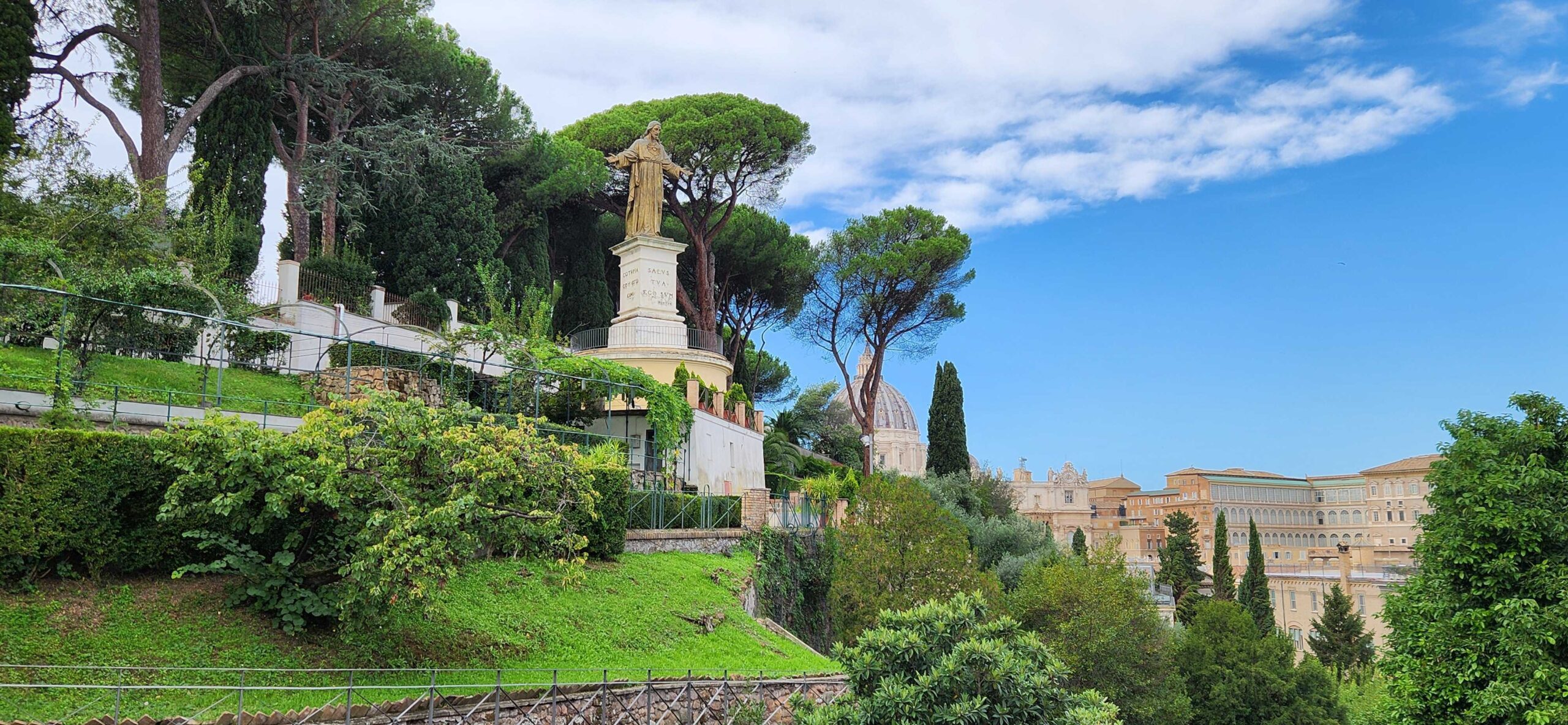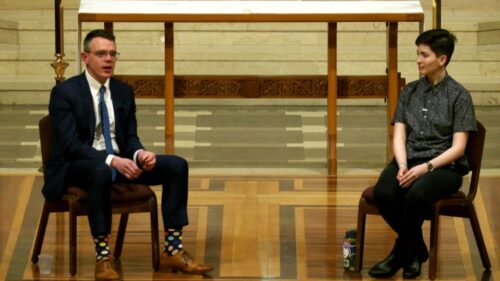This essay first appeared in our weekly Scripture reflection newsletter on October 12, 2024.
As I look out of the window in my room at the Jesuit Curia, where I am staying while attending the Synod on Synodality in Rome, I can meditate on one of my favorite statues in the world. It’s a larger-than-life-size image of the Sacred Heart of Jesus, with his arms flung wide. Underneath is the legend (in Latin, Greek and Italian) “I am your salvation.” It’s a daily reminder that we don’t follow Pope Francis, as important as he is; we don’t follow the Synod, as important as it is; rather, we follow Jesus.
It seems an obvious statement for a Catholic, doesn’t it? Of course we follow Jesus! But from time to time, that following can become more difficult, especially when we let other things get in the way.
In this Sunday’s Gospel, Jesus meets the person often called “the rich young man.” (In Mark’s Gospel we learn that he is rich; only in Matthew is he called young—a neaniskos.) The man seems to be a good person, following all the Commandments, and even asks Jesus what more he needs to do.
We don’t follow Pope Francis, as important as he is; we don’t follow the Synod, as important as it is; rather, we follow Jesus.
The answer—he needs to give up all he owns—makes him go away “sad.” Why? The man had many possessions and apparently couldn’t bear to give them up to follow Jesus along the way.
A few years ago a friend told me how much this passage bothered him. To my friend, it seemed that Jesus was asking the impossible: requiring someone to give everything. But Jesus is putting his finger on what was preventing this person from living a full life. For some of us, what prevents us from following Jesus is an excessive concern about ourselves, perhaps our bodily comfort. For others, it may be a reluctance to enter a faith community where everyone is, as Thomas Merton said of those in religious orders, “more or less imperfect.” For others, it may be a difficulty in admitting or confessing our sinfulness. All these things must be left behind, like the man’s “many possessions,” in order to follow Jesus.
But there is more to the Gospel than that. It’s not simply an invitation to let go of anything that gets in the way of God. It’s a reminder of how easy it is for wealth to do this. As the Sacra Pagina commentary observes, “The obstacle posed by riches seems to be that the thought and energy given to accumulating and preserving one’s riches can distract us from making God’s kingdom the focus of attention.”
The Gospel is not simply an invitation to let go of anything that gets in the way of God. It’s a reminder of how easy it is for wealth to do this.
You could certainly apply that to other parts of life: pride, arrogance, an ability to admit one’s sinfulness. But Jesus’s words must be understood in the context of all the Gospels, in which he continually raises up the poor and excoriates wealthy persons who fail to care for them. Remember the Parable of the Rich Man and Lazarus, in which a wealthy person is punished in the afterlife for his miserliness towards a poor man (Lk 16:19-31). There is something fundamentally wrong with a society in which a wealthy man who is “dressed in purple and fine linen” and who “dines sumptuously every day,” fails even to acknowledge the poor man outside his door.
Many things can get in the way of following our salvation, who is Jesus. Wealth is among the most prominent. Jesus, who looks upon us “with love,” as he did the rich young man, wants us all to be able to follow him more closely, including the rich.




